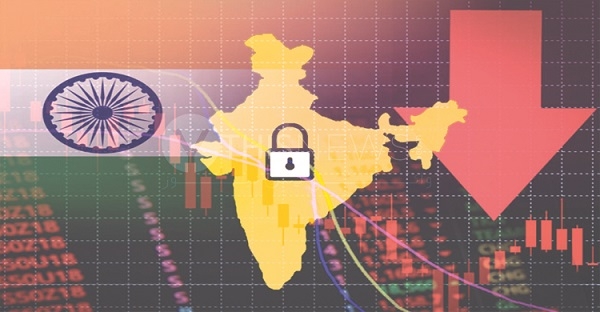Why Indian economy fails to listen to Modi govt?
Total Views |
The Modi government seems to be climax to each and every problem India has faced till date, except for one being the economy! The struggle India has been facing to maintain its GDP growth rate or the economic stance is beyond imagination, especially after year 2019 when the former Defence Minister had no other option but to take up the economic chair.
And here we decide to not to consider any other reason than the COVID-19 spread. The pandemic has done anything but highlighted the structural weaknesses of India’s economic model. Old debates among Indian economists have begun again—the debates of 1990, and even those of the 1970s and the 1950s. Global trade or domestic industries? Large scale or small enterprises? Industry or agriculture? Urban or rural development? The most contentious debate among economists is one that has started again, recently, on global versus local.
Those economists who had pushed policymakers to make a bold break from the past and engage with the world after 1991 now fear the return of an old, pre-1991 kind of nationalism, which emphasised self-reliance, small industries and village enterprises. India must remain 'vocal for global', they urge. The defence of free global trade, in the midst of so much evidence that we cannot carry on the way we are, doesn't it appear weak?

The Monetary Policy Meeting headed by RBI governor Shaktikanta Das on Thursday said that the GDP growth for year 2021 would be negative. He announcing a to-do list for the RBI to bolster the economic fight against Covid-19 said that RBI would be maintaining the repo rate at 4 per cent and an accommodative stance for the economy. He meanwhile also considered restructuring the lifelines for medium and small businesses.
It was expected the pre-budget mini reform would push the numbers up for key indicators of Indian economy but the wrong indicators shot up even after the Budget reforms were proposed in February. Unemployment figures have gone up in the latest data, released by the the Mumbai-based private think-tank Centre for Monitoring Indian Economy (CMIE) from 7.16 per cent in January this year to 7.78 per cent in February. It is higher than the October 2019 figures from pre-November intervention announced by Union Finance Minister Nirmala Sitharaman.
Villages have borne the brunt of economic slowdown. Consumption has been particularly low in rural areas creating a ripple effect on the overall health of the Indian economy. The slowdown in consumption is directly related to declining earning or less money in pocket to spend. Decline in income is the result of loss of employment or rise in unemployment. The CMIE data shows that unemployment rate increased in rural areas from 5.97 per cent in January to 7.37 per cent in February. Silver lining could be the decline in unemployment in urban areas from 9.7 per cent to 8.65 per cent, according to the CMIE.
With this the economists everywhere should begin to admit that they must go back to school to invent a new economics. India needs a new economic model. It should be neither the model that existed before 1991 when growth was slow, nor the model since then, which has not delivered inclusive growth. For India to grow inclusively and sustainably, new forums are required urgently, within formal institutions and outside, for participative development of solutions that take into account the real concerns of the country’s population.
As far as known, the science of economy is not that adequate and that we need new development model. Its time to learn and change - for the academic purpose of making more accurate predictions, and also in response to an ethical imperative to devise policies that would include those who have tenuously been hanging on to the country’s bus of GDP growth.

